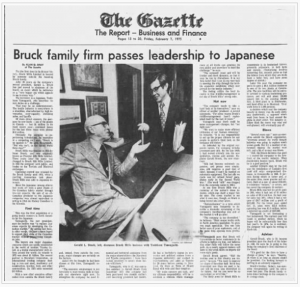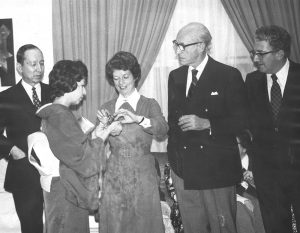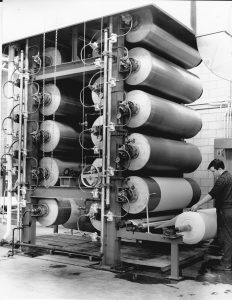Japanese acquisition: the family business hands over control
Driven by competition from Asian companies in the textile market and the lack of succession, Gerald Bruck hands over control of the company in July 1973. Toyobo Co. Ltd, a Japanese textile giant, and Marubeni Corporation, a Japanese company specializing in international trade, become majority shareholders.
Modernization and streamlining of operations
From 1973 to 1976, the new Japanese owners implement a major program to improve the profitability of operations and to specialize in high-quality polyester fabric. On the one hand, they modernize the Cowansville plant at a cost of $6,600,000 with the purchase of new equipment: rapier loom, water loom, specialized gluing machine, bar code, etc. On the other hand, they stop the texturing operations of the Saint-Jean-sur-Richelieu plant in 1975 and the circular knitting operations of the Sherbrooke plant in 1976.
A different corporate culture
The new governance leads to a culture shock between employees and their new bosses. Both parties try to understand each other, but communication is difficult. Japanese management practices, which advocate consensus and group spirit, clash with the North American hierarchical model and workers resist change. Japanese leaders strive to maintain good relations by, among other things, inviting executives to the Bruck Clubhouse or to upscale Japanese restaurants in Montréal.
Unsuccessful efforts, insufficient performance
Unfortunately, the cultural gap is too deep and, above all, the performance analyses are alarming. At the end of 1978, in spite of great efforts and continuous financial support, the Japanese decide to sell the Bruck Mills corporation, on the verge of bankruptcy, to Consolidated Textiles Mills.





